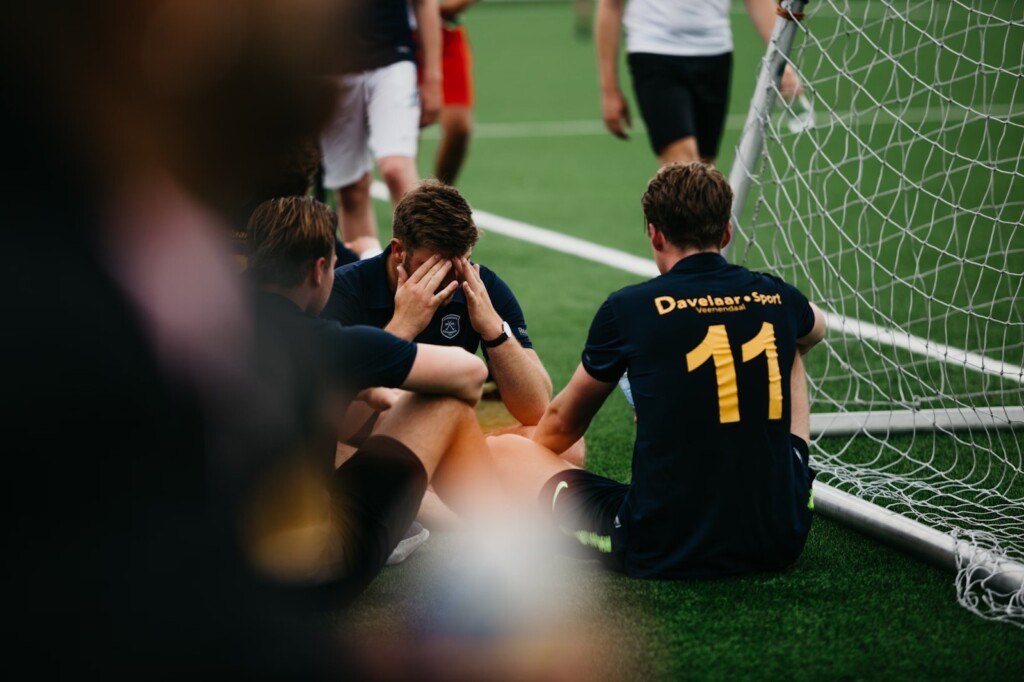
Everyone loves the slow-motion replay of a winning goal. What people remember just as clearly, though, is the first time they messed up in front of a crowd — the swing that whiffed, the sprint that ended in a stumble. Sport gives that public sting early, long before most other arenas of life do. The moment hurts, sure, but it also starts a lesson that keeps showing up later in jobs, friendships, and personal projects.
There’s another twist: sport mixes skill with luck in plain sight. A perfect shot can clank off the post, or a referee whistles at the worst possible second. Fans accept that weird math, much like someone spinning at Tooniebet Ontario casino knows probability plays its own little game. The field takes that uncertainty and turns it into practice — you can do everything right and still come up short, so what happens next?
Small Lessons Hiding in a Bad Score
Everyone talks about grit, yet grit is just the skin that grows over mistakes. Lose enough times and you start to see patterns: loose passes, sloppy warm-ups, late nights that show up in your legs the next morning. You also notice how teammates handle your error — a quick pat on the back or a cold stare — and you file that away for the day you’re the one giving feedback.
- You learn to own your part and skip the blame game.
- You figure out how to show up for practice even when pride feels bruised.
- You tinker with strategy because the old plan clearly flopped.
- You catch yourself feeling sorry for the rival who just missed, because you’ve been there.
- You start seeing a whole season, not a single match, as the real contest
It’s messy, repetitive, and impossible to fake in a classroom.
Silence in the Locker Room
Walk into a locker room after a heavy loss and you’ll hear it — not yelling, usually, but a weird hush. People sit, peel tape, stare at shoes. Someone finally says, “Alright, what do we fix first?” That simple question teaches timing: when to speak, when to keep quiet, how to critique without tearing the group in half. I’ve seen the same rhythm later in board-room debriefs and even family arguments. The volume is lower, but the skill set is identical.
When You Can’t Share the Blame
Team sports spread the sting around; solo events put it right on one person’s shoulders. A tennis player who double-faults on match point, a sprinter who false-starts, a lifter who misses the jerk — there’s nowhere to hide. Most replay the moment that night, not out of self-hate but to translate agony into data. Toss height, reaction time, breathing pattern: tiny tweaks become the roadmap forward. That habit — turn pain into notes — is gold when a work proposal bombs or a personal goal stalls.
Are Kids Better Off Losing?
Some leagues still hand out just one trophy. Others make sure every child leaves with a ribbon. Studies hint that honest defeat, paired with real coaching, builds thicker emotional skin than constant praise. The trick is guidance: knockdowns without feedback discourage; knockdowns with a path forward sharpen focus.
Five Places the Skill Pays Rent Later
- Job hunting — A “no” from HR feels like one lost match, not a life verdict.
- Creative pitches — Rejection letters sting, but they read like coaches’ notes.
- Relationships — Arguments cool faster when both sides have practiced shaking hands after games.
- Start-up life — Investors pass; founders huddle, tweak, try again.
- Personal goals — A diet slip or a missed workout looks like a slump, not the end.
People who’ve rehearsed defeat waste less time stewing and more time adjusting.
A DIY Failure Drill
Coaches sometimes design a session everyone is supposed to fail — maybe a fitness test set two levels too high. The goal is to feel the sting, then breathe, then break down what happened. Try your own version: cook a complicated dish without a recipe, tackle a puzzle above your pay grade, pitch an idea to a friend who loves hard questions. The point isn’t to fall flat forever; it’s to remind your nervous system that messing up won’t end the world.
The Quiet Superpower
Games wrap loss in whistles and schedules. Seasons promise another shot. Adult life isn’t that tidy, but the reflexes carry over. A person who can nod at the scoreboard, exhale, and walk back to practice owns a quiet superpower — the ability to stay curious right after everything goes wrong. In a decade where careers pivot, markets wobble, and personal plans shift overnight, that trait might matter more than any trophy ever did.


